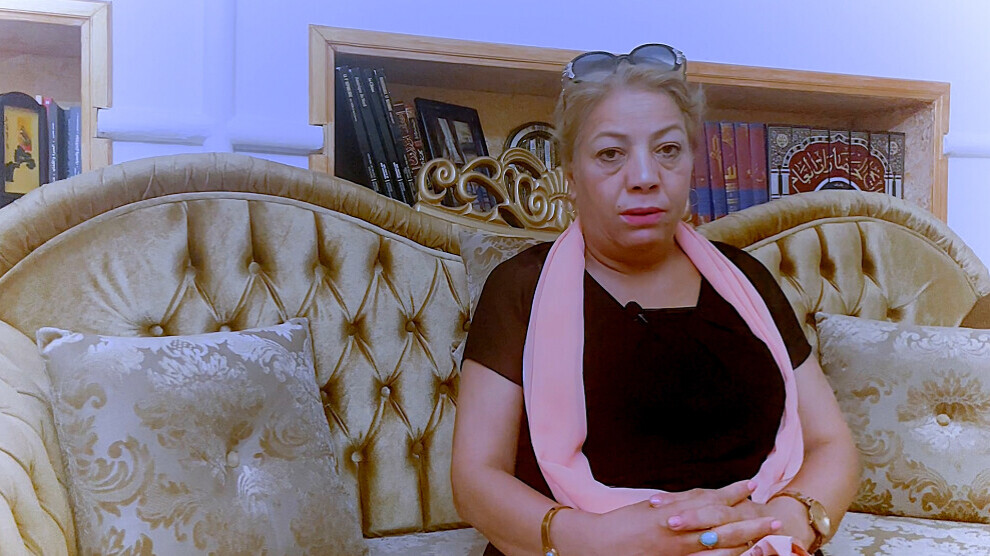Tunisian activist: Women of Sweida embody resistance to oppression
Tunisian activist Fathia Nasri said Sweida’s women, heavily affected by killings, abductions, and disappearances, carry social burdens yet remain symbols of resilience and resistance against abuses and sectarianism.

IKHLAS HAMROUNI
Tunis – At the heart of Syria’s crisis, Sweida exemplifies the extreme suffering of women, who face identity-based killings, kidnappings, and enforced disappearances. Bearing the weight of social and communal protection, Syrian women are now at the forefront of the city’s humanitarian and security challenges amid escalating sectarian violence.
Where identity becomes a target
Nasri, a member of the Tunisian League for Human Rights in Kasserine, offered a detailed assessment of the situation in Sweida, underscoring the devastating toll of violence on women and their prominent role in protests. She called for justice, accountability, and stronger protection for the most vulnerable, alongside a vision of a united Syria that upholds human rights and fosters coexistence among all communities.
Her assessment draws on close monitoring of recent events. She warned that escalating sectarian tensions and human rights abuses pose a grave threat to the city’s social fabric. Nasri recalled visiting Syria before the uprising, describing Damascus as a hub of coexistence, culture, and harmony among its diverse communities — a vision of “beautiful Syria,” she said, that has since been shattered.
She added that Syrians’ demand for freedom and democracy was legitimate and deserved support, recalling Tunisia’s own revolution as a spark that shaped her belief in liberty, equality, and the right of peoples to self-determination. But today’s reality in Syria, she said, is deeply painful, particularly amid Israeli strikes on both military and civilian sites, including factories, which further aggravate the humanitarian crisis.
Nasri noted that Sweida, a city of about 600,000 people on the Jordanian border, has become “a stage for identity-based killings and grave abuses.” She said the violence amounts to war crimes and genocide, involving incitement among neighboring tribes, the displacement and enforced disappearance of more than 80 women, and a sharp rise in killings of women and children.
She stressed that these crimes specifically target the Druze community, warning that those fueling sectarian and separatist conflicts serve only “Israel” and the fragmentation of Syria. “Sweida is an inseparable part of Syria,” she said, recalling its historic role as the stronghold of Sultan Basha al-Atrash, who led the revolt against French colonialism.
‘A humanitarian catastrophe’
“What happened in Sweida — the burning of nearly 40 villages, the displacement of their residents, and mass killings — is a humanitarian catastrophe,” Nasri said. She noted that women who had protested both against the Syrian regime in the past and later against the opposition’s interim government embody the resilience of Syrian women resisting sectarianism and violence. Hundreds of them, she added, remain forcibly disappeared.
Speaking at the Women’s Forum in Hasakah, North and East Syria, on August 5, Nasri presented figures highlighting the scale of the devastation: 39 villages completely destroyed, more than 800 people killed — most of them women and children — and 600 women still missing.
“Identity-based killings are present even on virtual platforms, which is appalling,” she said, stressing that women in Sweida have become a pillar of resistance and defiance against repression and injustice. She noted that women activists have raised the banner of the revolution across the city, adding, “A united Syria must respect women’s role and ensure the separation of religion and politics to guarantee genuine democracy and peaceful coexistence among all communities.”
Nasri added that the women who bravely took to the streets, raising the revolution’s slogans, embodied a national outcry in defense of women’s and children’s rights. She called on the international community to convene a major conference in Sweida to launch impartial investigations, prosecute those responsible, and address the enforced disappearances of women.
‘Women’s rights reflect society’s progress’
Nasri stressed that women’s rights are a vital measure of societal progress, underscoring that gender equality and child protection form the foundation of any civilized society. She warned that setbacks in women’s roles would destabilize the entire Syrian community, noting that long-term, consistent efforts are essential to repair the damage and achieve genuine stability.
Concluding her remarks, she said: “Syria needs national unity and true democracy, with full respect for women’s rights and society as a whole, to ensure a better future.” The voices of Sweida’s women, she added, remain a beacon of hope for building a cohesive and safe Syria for all its communities
